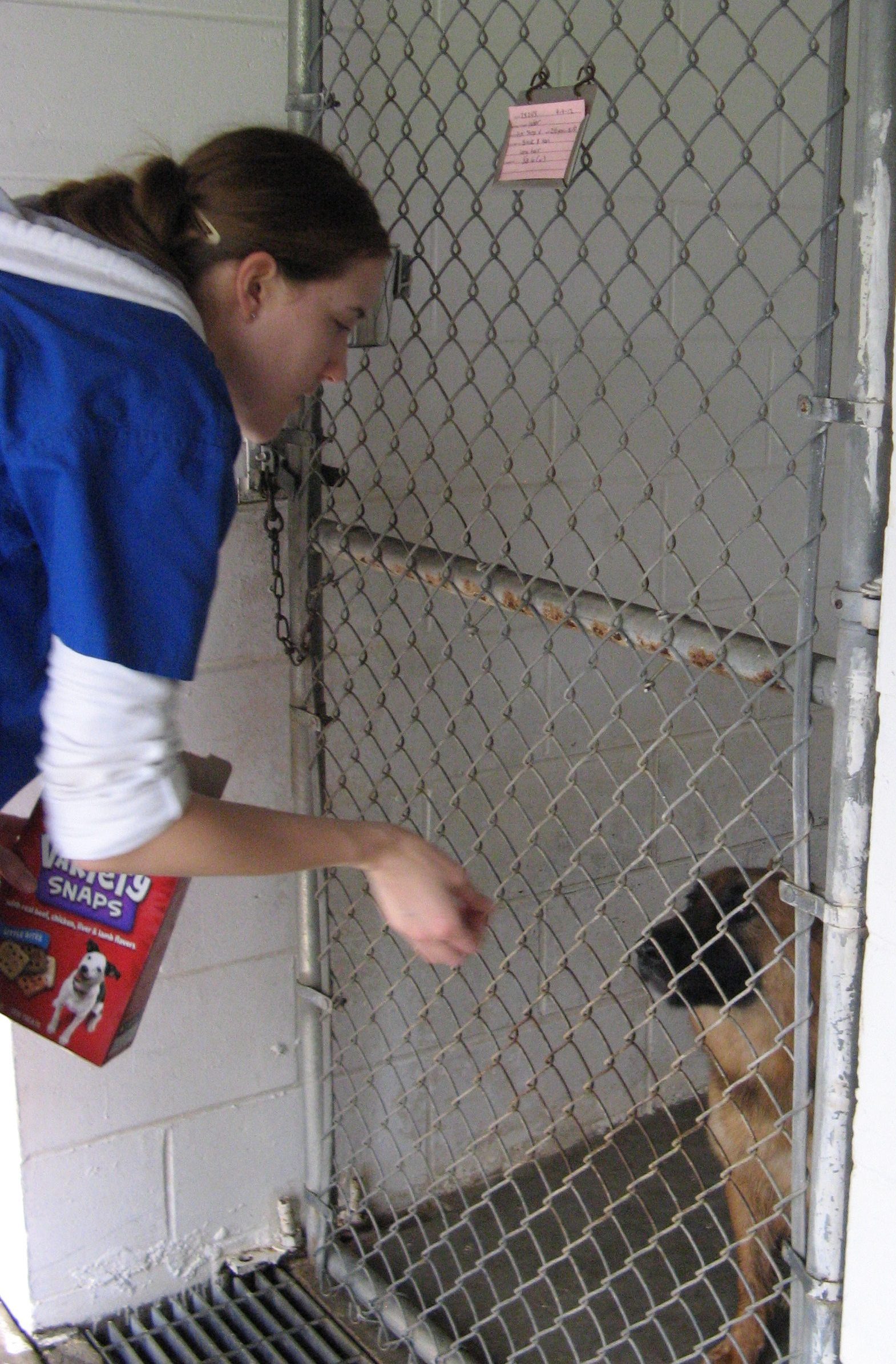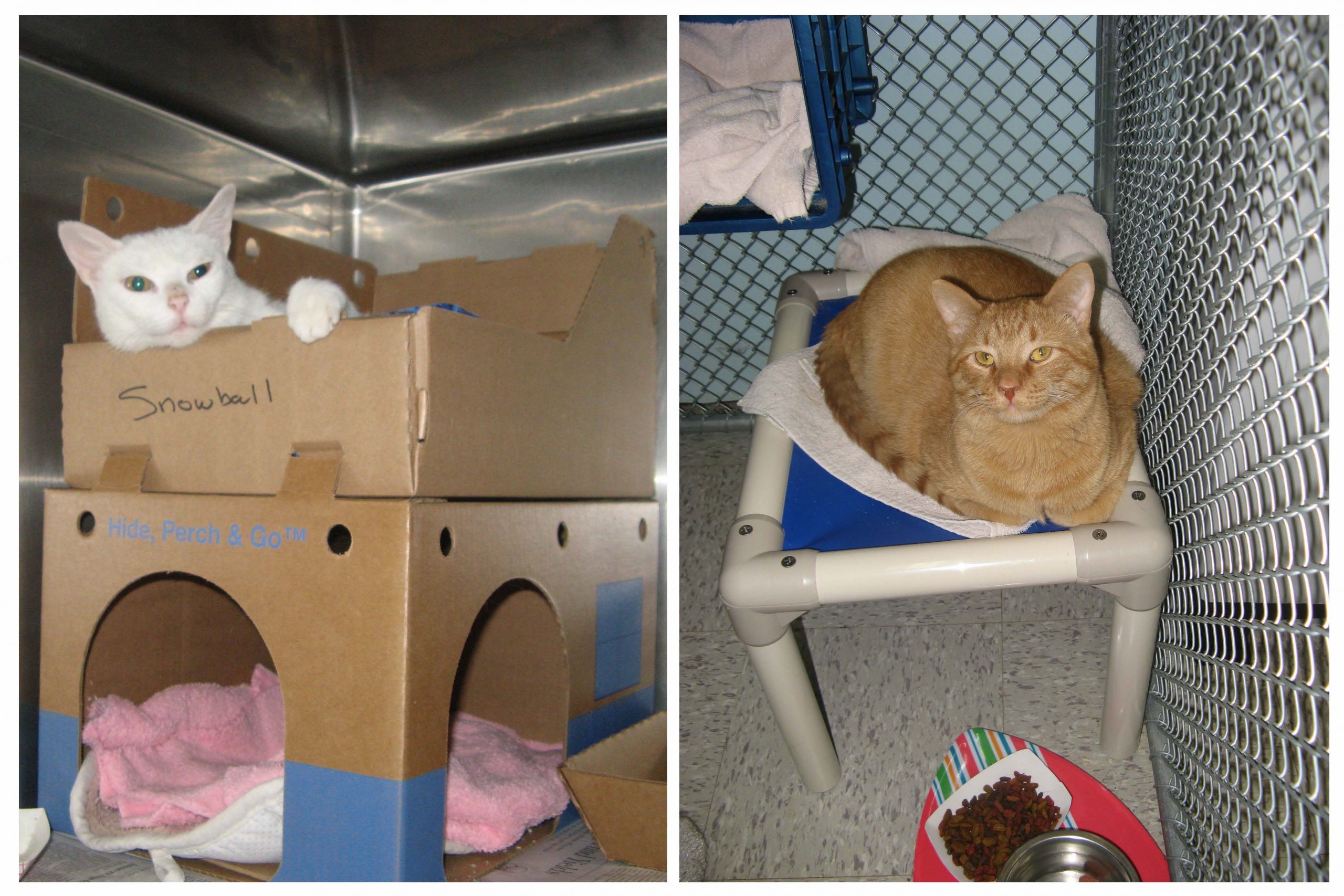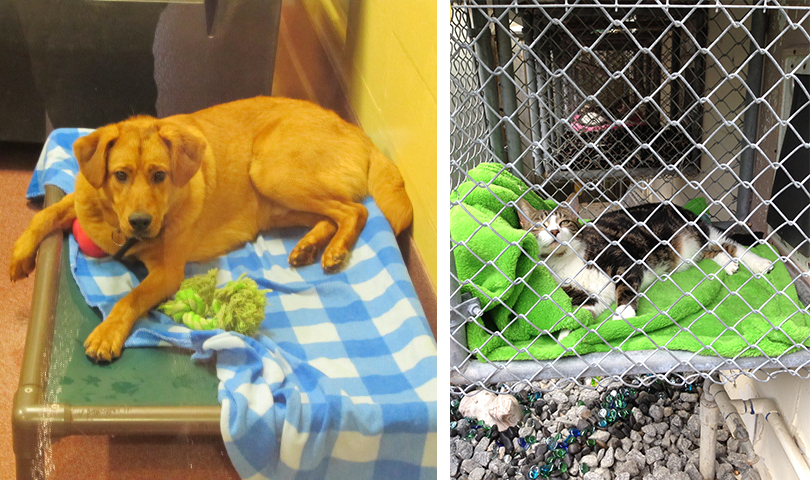Module 8: The Case of the Barking Dog
A Sense of Control
Think about the times in your life when you have been THE MOST stressed. You may remember thinking to yourself how everything just seemed completely “out of control”! In fact, a “sense of control” over conditions is well recognized as one of the most critical needs for emotional health. This means that we must provide animals with a variety of satisfying behavioral options—they need variety, and they need choice! Giving them a sense of control is an incredibly powerful means of improving their welfare in the shelter.
Positive Predictable Interactions and Creature Comforts
Not knowing what to expect is stressful for people and animals alike. Picture yourself far away from home, from all the things you know—deposited for unknown reasons in a strange, confining place where you don’t know anyone. What would help you cope? What would decrease your stress? One of the most important things would be for you to be able to know what to expect. If you knew what to expect, you could deal with and adjust to the daily routine. In fact, knowing when both pleasant and not-so-pleasant things are going to happen helps both people and animals cope because we can learn what to expect when, and can prepare ourselves. For example, if events that are perceived as stressful or scary (such as cleaning time) occur on a predictable schedule, animals can learn to cope more easily because they will know that they can relax afterward. Having positive predictable events to look forward to every day will also help tremendously. For example, if dogs know that they will reliably get to go outside for exercise at the same times every day, they will learn to look forward to these times, and learn to relax in between. Providing animals with a predictable daily schedule can go a long way toward decreasing stress! Likewise, we all like to feel safe, secure, and comfortable. Think about the many simple things that can make animals more comfortable—a soft bed, a cozy hiding spot, a safe refuge, something nice to look at, something pleasant to smell, or something tasty to eat . . .



When animals are provided with regular, consistent, predictable positive interactions and pleasant activities, they learn what to expect and can adapt and adjust to the routine. In other words, animals quickly learn consistent routines—and they will acclimate to a new environment much more quickly if they know who will be caring for them and when, and that the experience will be a positive one. Thus a good emotional environment promotes adaptation to the shelter environment because animals can learn to what to expect, have the ability to shield themselves from unpleasant stimuli, and are afforded the provision of basic essential creature comforts, as well as some control, variety, and choice.

